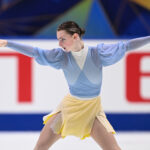
All-Japan Figure Skating Championships Always Deliver Excitement and Emotion on Par with Top International Events — A Look Back at the 2024 All-Japan Figure Skating Championships — Part two men
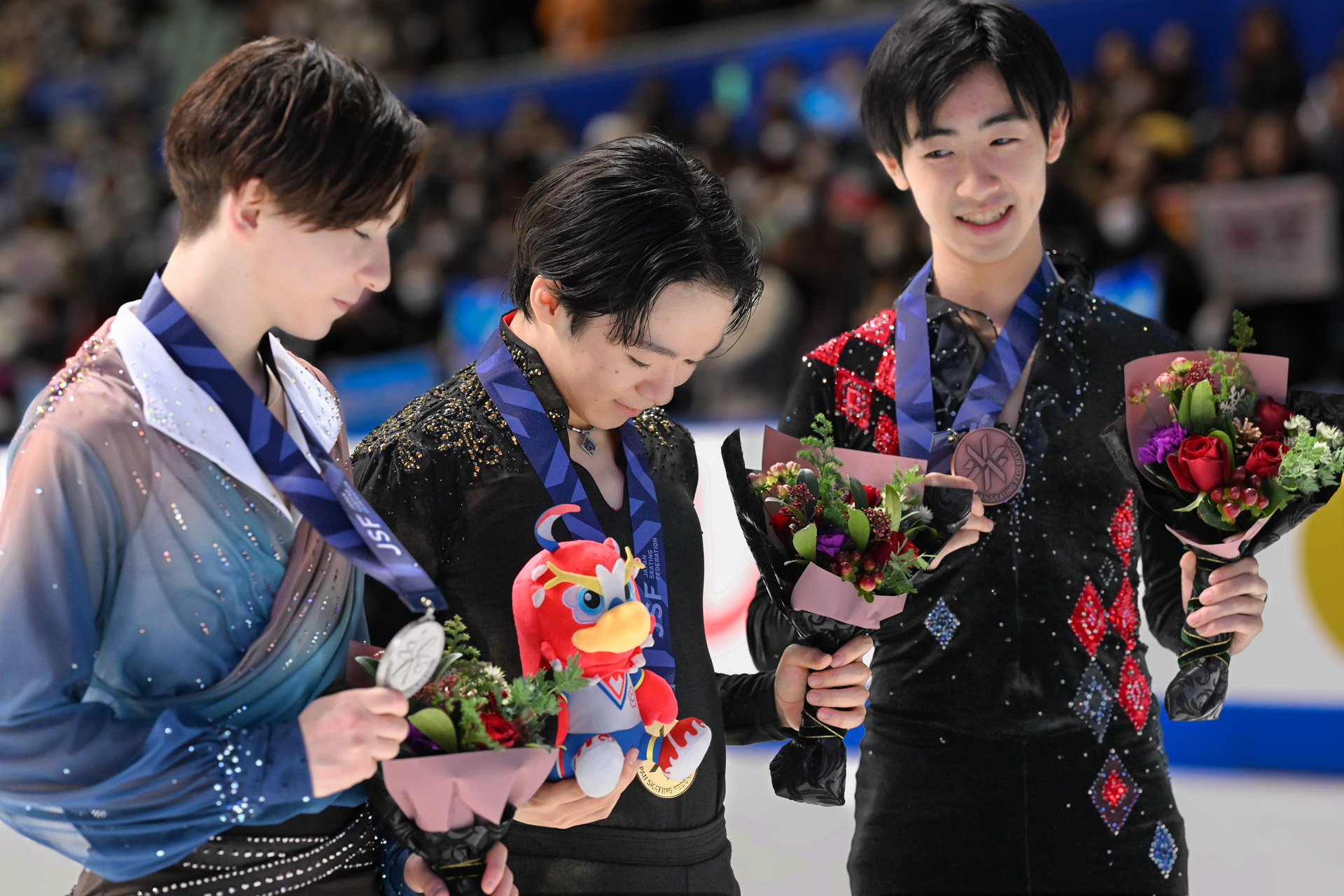
Following the retirement of six-time national champion Shoma Uno, the spotlight naturally shifted to the new generation of rising star skaters, intensifying the competition within the men's singles. As world champion Ilia Malinin, makes continuous progress, difficulty has simultaneously increased for Japanese male skaters to reach the top in international competitions. Meanwhile, on the women's side, Kaori Sakamoto aimed for her fifth title, while the rest of the field have their eyes on breaking through the difficulty barrier of the notorious triple Axel jump (3A). Many strong contenders set their sights on surpassing the 200-point mark—an achievement worthy of a Grand Prix Series podium finish.
This National session became an ideal stage for skaters to showcase their ambition and capability. In the senior or junior divisions alike, every participant yearned to prove that the gap between Japanese figure skating and the world's best is truly narrowing.
Although the champion Yuma Kagiyama completed the event with a smile and Kaori Sakamoto successfully defended her title by a narrow margin, soaring expectations and mounting pressure had caused skaters competing in the Grand Prix Series and vying for World Championship spots to falter, falling short of their potential—a stark contrast to last year's Nationals. In comparison, the junior skaters demonstrated both dedication and talent, proving they have the strength to carry the future.
In this competition, the ages of the men's singles skaters ranged from 14 to 37, and the women's singles from 14 to 29, clearly reflecting the flourishing talent of the figure skating sport in Japan.
Yuma Kagiyama: A Champion Who Blossomed Under Pressure
Yuma Kagiyama delivered a consistent performance, placing first in both the short program and the free skating, to earn a total score of 297.73 and claim his first-ever Japan National Championship title. Since 2020, he has continued working with the world-class choreographer Lori Nichol; and in this season, he maintained his signature understated style. Both of his programs featured delicate guitar melodies that highlighted his smooth and refined skating skills.
His short program, The Sound of Silence, featured a simple yet ethereal melody creating a captivating sense of stillness. Kagiyama opened with a clean quadruple Salchow, followed by a high-quality quadruple toe loop+triple toe loop combination. His takeoffs and landings were fluid and seamless, retaining the graceful flow of the music. However, he under-rotated and fell on the triple Axel in the second half, which had impacted his score, resulting in his lowest short program score of the season.
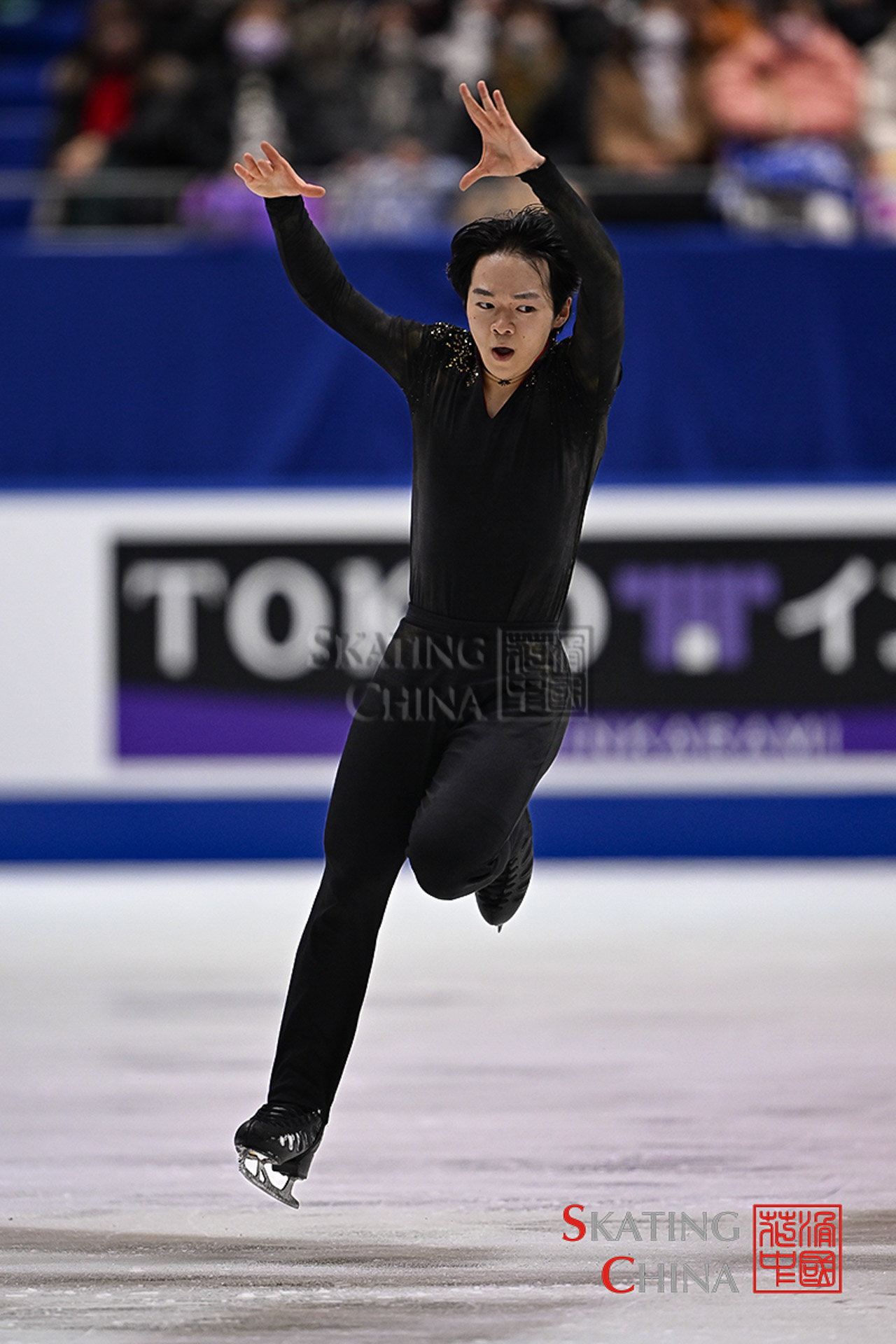
Photo by SkatingChina
For Yuma Kagiyama, this title is more than a victory—it is a milestone forged through perseverance, growth, and the power to rise under pressure.
Rio Nakata: Teen Wave of Courage and Breakthrough
Soaring into second place was the 16-year-old junior skater Rio Nakata, who set new personal bests in both the short and free programs, earning a total score of 263.99 (though this is a non-ISU-recognized score). This has been a challenging season for Nakata. Last season, he captured the Junior Grand Prix Final title and the silver medal at the World Junior Championships, putting him firmly in the center of spotlight. However, at the Junior Grand Prix Final held in early December this season, he placed only third—failing to continue his winning streak, which dealt him a psychological blow.
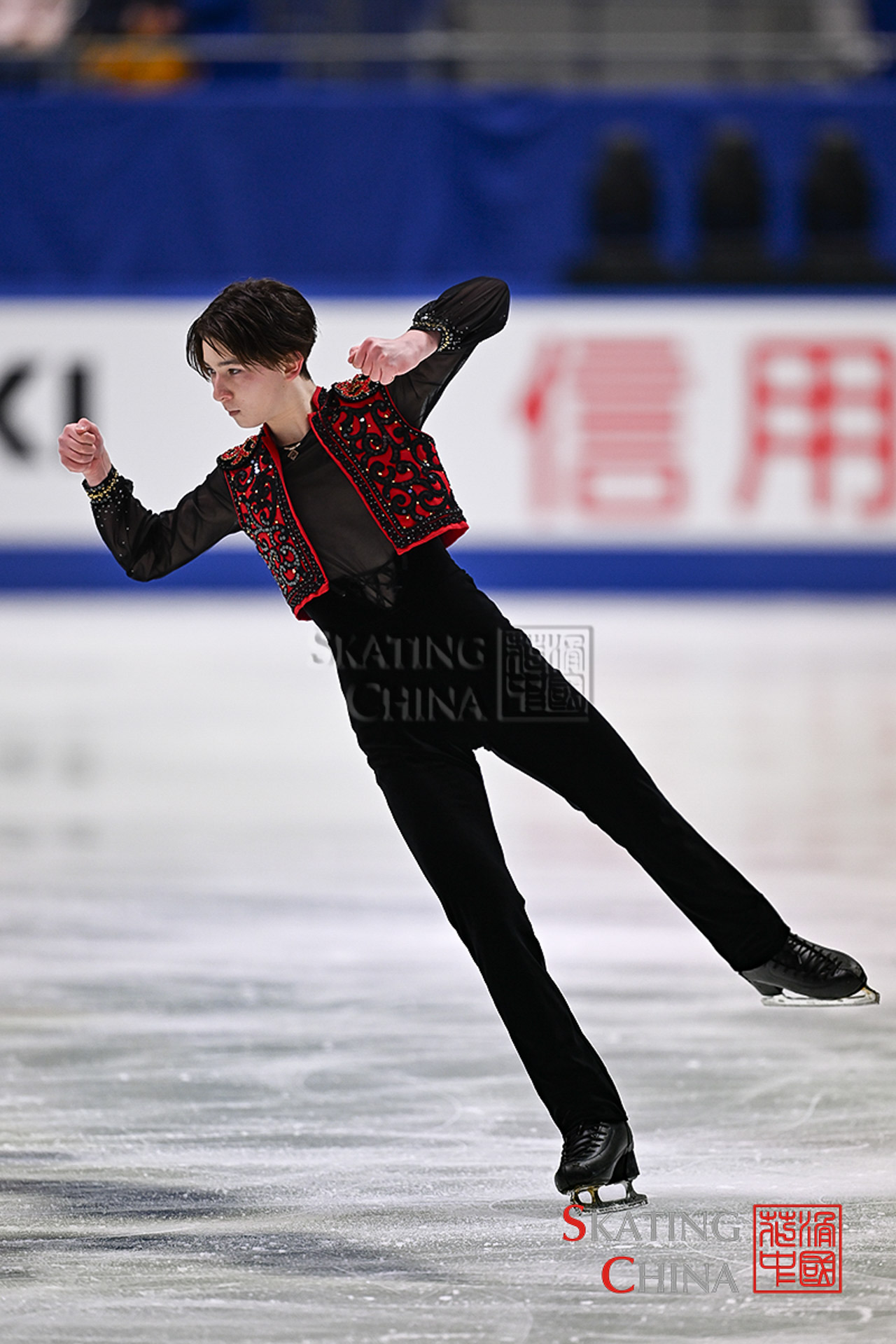
Photo by SkatingChina
In the short program, Nakata executed a quadruple toe loop+triple toe loop combination—which is technically prohibited in junior competitions—and followed with a clean triple Axel jump. After landing his final triple flip, he clenched his fist in celebration. Set to vibrant and passionate flamenco music, his performance featured rich upper-body movement and intricate, expressive footwork that the crowd reponsed with a big round of applause. The program's highlight was the choreography where he slapped the ice with both hands—a moment that had often passed unnoticed in past performances, but this time perfectly matched the rhythm. Nakata's short program was also the only men's short program of the day to earn all level-fours with no jumping errors.
However, with silver medalist Mao Shimada in the women's division alike, Nakata is ineligible to compete in the upcoming World Championships and the 2026 Winter Olympics due to age restrictions.
Tatsuya Tsuboi: A Strategic Medalist with Steady Execution
Although Tatsuya Tsuboi made a major error on triple Axel jump in the short program and ranked only 14th, he executed a well-planned strategy in the free skating and delivered a stable performance. Based on the difficulty of his jumps and the overall quality of his execution, he earned the third-highest score of the day.
In the end, he made a remarkable comeback to the podium with a total score of 247.31, earning his first medal at the Japan National Championships.
Having participated in only one Grand Prix event this season and lacking an advantage in the rankings, this performance effectively secured his spot on the World Championships team, opening up broader opportunities on his international stage.
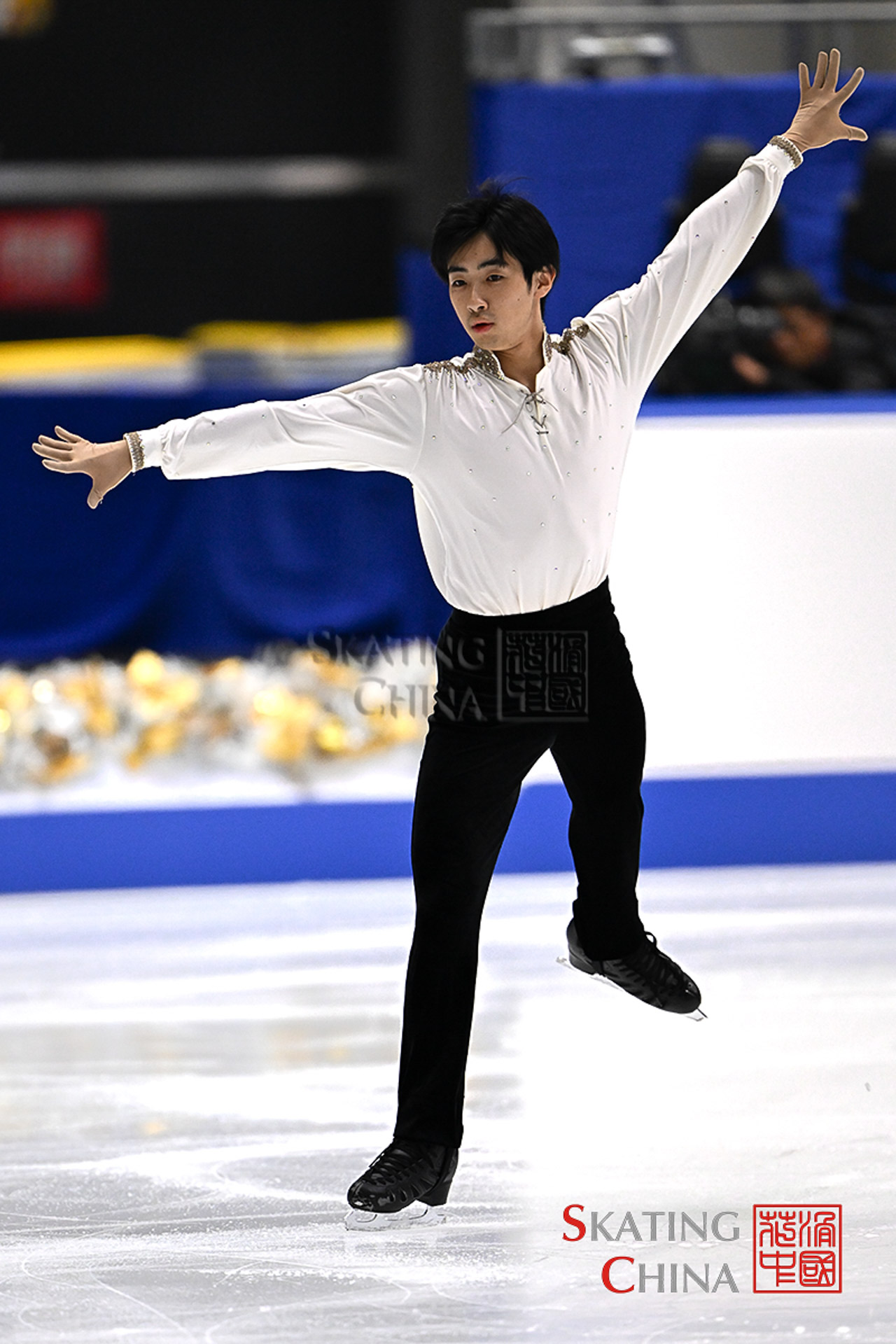
Photo by SkatingChina
Nobunari Oda: A Heartfelt Farewell
One of the most talked-about stories this year is undoubtedly Nobunari Oda's remarkable fourth-place finish with total score 234.68. The ever-spirited and beaming 37-year-old retired skater made a stunning return to the Japan National Championships after an 11-year absence. Starting from the lowest level of regional qualifiers, he battled his way up step by step, competing alongside the younger generation and ultimately earning a spot in the nationals—a truly admirable comeback journey.
In the years since stepping away from competition, Oda has remained active in ice shows and the entertainment industry, charming fans with his humor and amiable personality. For his competitive return, he choreographed his own short program to Matsuken Samba, a piece infused with retro style and vibrant rhythm. His dramatic performance perfectly showcased his lovable character and stage charisma. Opening with a clean quadruple toe loop-triple toe loop combination and a triple Axel jump, he left the audience in awe—many couldn't help but wonder, "How does a 37-year-old keep his knees in such shape?" The crowd was swept up by his infectious energy and rhythm, clapping along, the atmosphere instantly lifted.
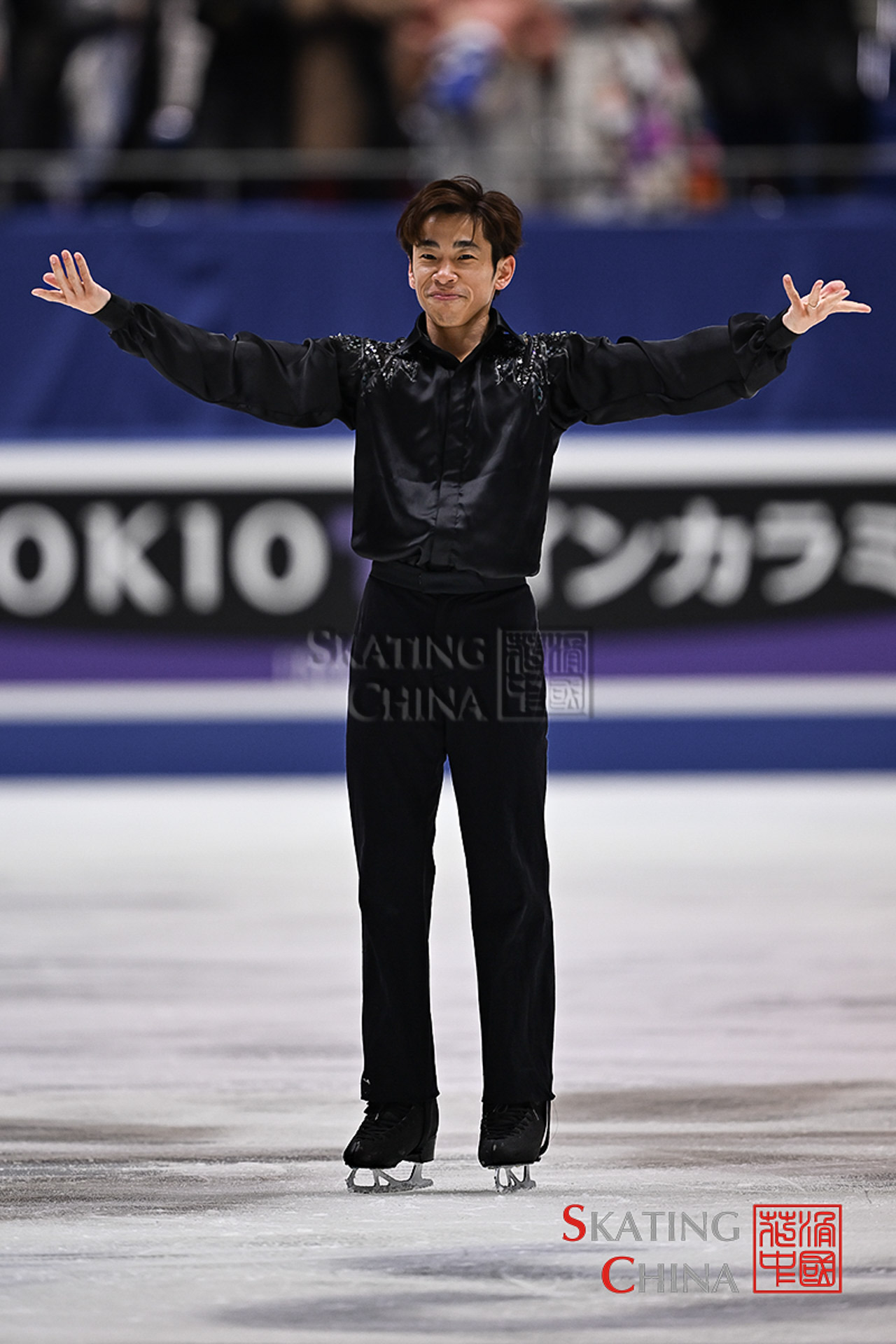
Photo by SkatingChina
For his free skating, Oda chose Angels by British singer Robbie Williams. Although he fell on his opening quad toe loop jump, he rebounded with a clean triple Axel+Euler+triple Salchow combination that seemed to echo the lyric: "Cause I have been told that salvation lets their wings unfold." His gliding, wing-spread movements defied age, full of passion and conviction. In previous regional events, he had lost points due to weaker spins and step sequences; however, he has shown marked improvement here, demonstrating the focus and perseverance of a seasoned competitor.
The Ups and Downs of Core Competitors
At 2024 Japan National Championships, three highly anticipated contenders—Kazuki Tomono, Shun Sato, and Kao Miura—ultimately placed fifth, seventh, and eighth respectively. All of them has encountered significant errors across both programs, falling short of expectations.
Kazuki Tomono delivered a steady short program and secured a strong starting position by placing third, raising hopes for a podium finish. However, in the free skating, he failed all three of his planned quadruple jumps, falling on two of them, and placed only eighth in that segment. He finished fifth overall with a total score of 233.95, a performance leaving some regret.
Shun Sato also faced a turbulent competition. In the short program, he under-rotated and fell on his quadruple Lutz jump. In the free skating, he again fell on the opening quadruple Lutz jump, followed by a series of technical errors, including disrupted jump timing and a fall on the triple Axel+Euler+triple Salchow combination in the latter half, which affected both his flow and execution. He finished seventh with a total score of 230.80.
Kao Miura, known for his speed and crisp jumps, was clearly affected by injuries this season. He fell on a quadruple toe loop jump in the short program. Although the first half of his free skating was relatively solid, he mistakenly repeated a quadruple toe loop jump in the second half, rendering it invalid and incurring a significant loss in points. He placed eighth overall with a score of 230.09. Despite not being in peak physical condition, he demonstrated resilience and fighting spirit throughout.
The three skaters above possess extensive international experience and high-level technical skills, but their performances in this competition revealed the need for further adjustment in consistency and form. As the new season approaches, whether they can regroup and return to peak condition remains something to watch closely.
The Fusion of Skill and Style
Japanese skaters' passion for figure skating often surpasses what most can imagine. They dedicate immense time and effort not just to refining technical precision, but also to pursuing the artistry and elegance of an entire program. From choreography and music selection to costume design and visual presentation, every detail reflects a deep aesthetic sensitivity and creative devotion. Even without the chance to compete internationally, many aim for the Japan National Championships, striving to stand upon the sacred ice synonym to honor and artistry.
The stage presence built over more than a decade of skating experience—the calm and commanding aura-cannot be easily replaced by high-difficulty jumps alone. Only by truly immersing oneself in the performance, resonating with the music from fingertips to facial expressions, can a skater convey the soul and warmth of the art to the audience.
In today's competitive environment, where "Ultra-C elements" and results-driven mindsets dominate, it is heartening to see the Japan Nationals still offering enough spots for passionate skaters to perform. Figure skating is a fleeting art; every second on the ice is unrepeatable. Precisely for that reason, extending skaters' careers and fostering an environment where diverse styles and generations can coexist and shine should be a shared mission for the sport's community and its fans.
May future competitions continue to showcase a rich tapestry of styles and expressions-that is what has always made figure skating so endlessly captivating.
(Written by Tien-yun Chang, photographer: Hsinyi Ho)
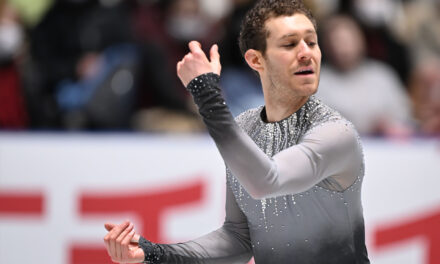
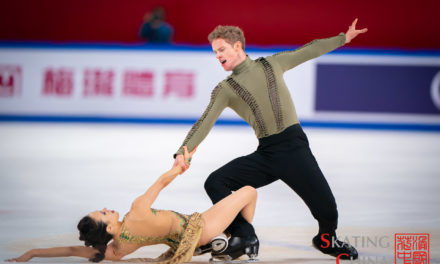
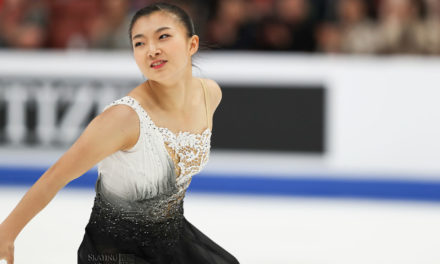
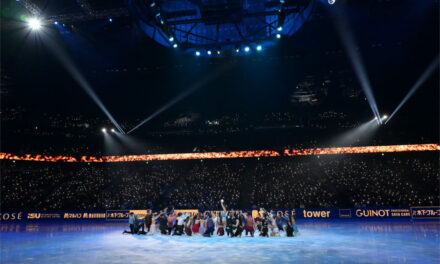
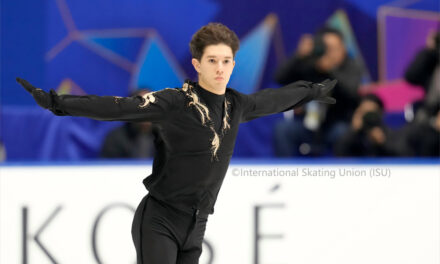
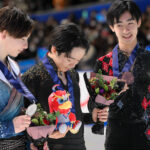
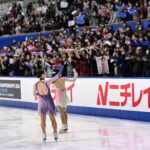
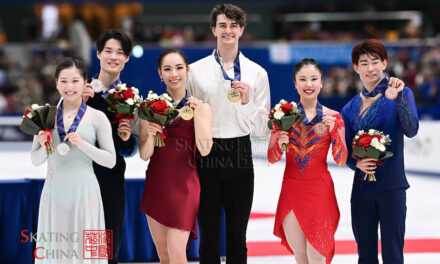
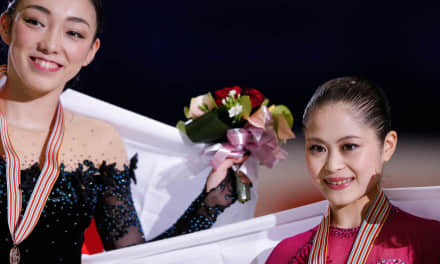
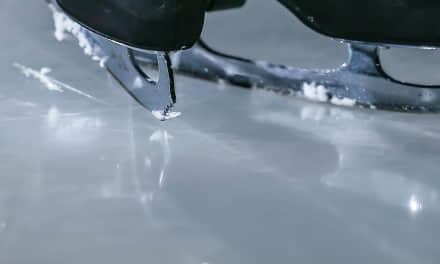
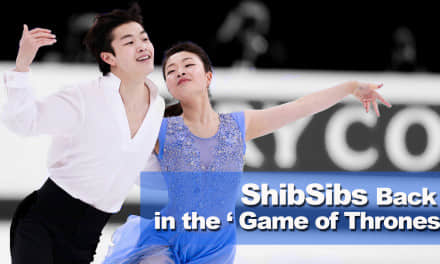
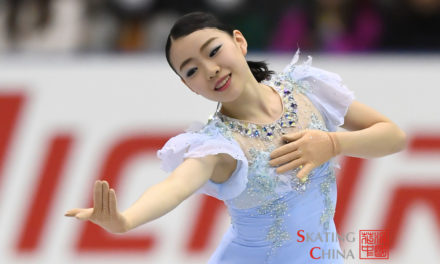
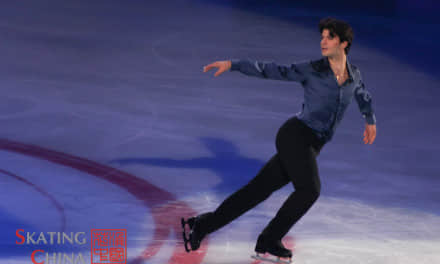
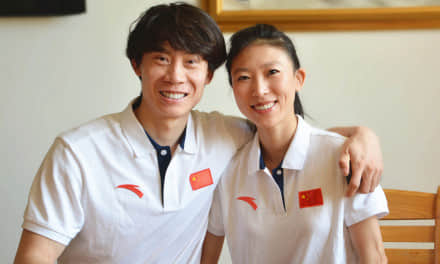
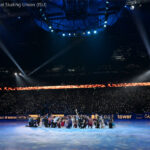
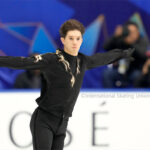
近期评论
——“花样滑冰是艺术与体育最好的结合”
——“花样滑冰是艺术与体育最好的结合”